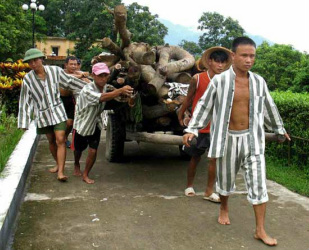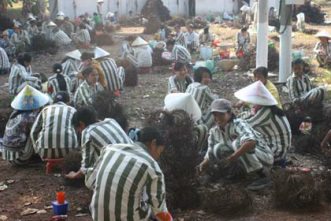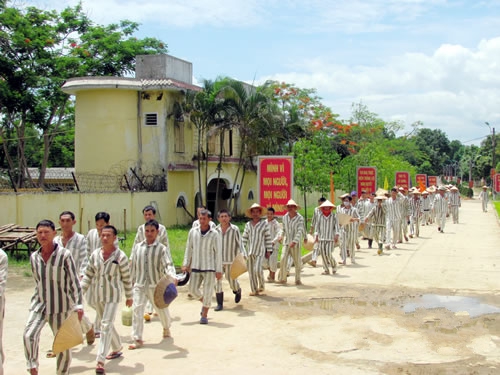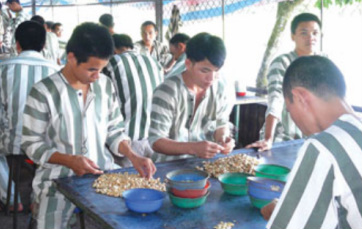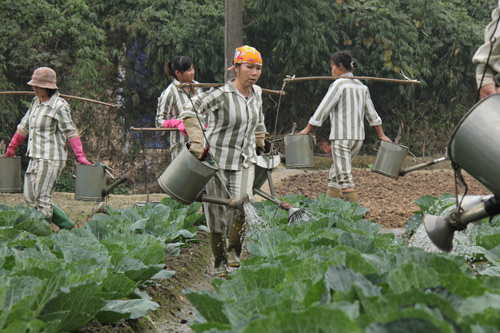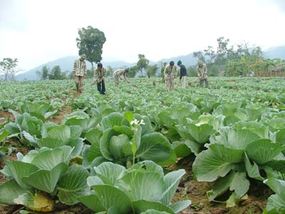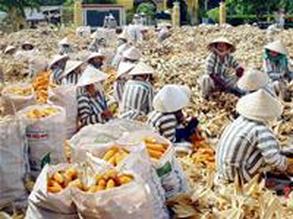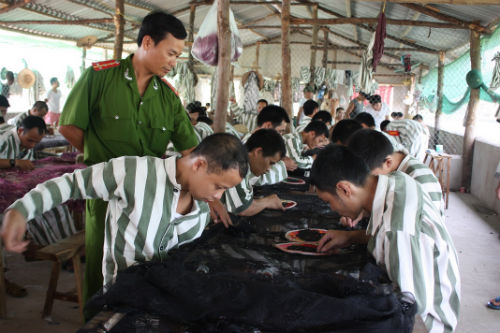Forced Prison Labor
“I was forced to work very hard. They made me carry large rocks on my shoulder. I fell, injuring my back. Later they assigned me to make bamboo and wicker baskets. It may sound easy, but they forced us to work like a machine. When you do this a long time, your back hurts and your hands cramp up from forcing the bamboo into place.”
--A Montagnard prisoner describing his ten-hour work days at Nam Ha Prison. "Vietnam: Torture and Abuse of Political and Religious Prisoners," Campaign to Abolish Torture in Vietnam, 2014.
Forced Labor in Vietnam's Prisons & Re-Education CentersAll convicted prisoners in Vietnam, as well as detainees in re-education centers, are required to work eight hours a day without pay, primarily doing agricultural and manufacturing work.
Manual labor is obligatory for convicted prisoners in Vietnam, regardless of whether they have been sentenced for political and religious reasons. This is in violation of the ILO’s Convention on the Abolition of Forced Labor (No. 105), which prohibits forced or compulsory labor of prisoners convicted of political offenses or because of racial, social, national, or religious discrimination. Vietnamese political and religious prisoners who have tried to protest forced labor requirements have been harshly punished. The use of forced labor by detainees in re-education centers (and drug detention centers) also violates ILO Convention No. 29. Ratified by Vietnam in 2007, the convention prohibits the use of forced labor by detainees who have not been convicted in a court of law. Those unable to meet forced labor quotas, even due to illness or fatigue—as well as those who raise concerns about prison conditions and mistreatment of prisoners—are punished by being put in isolation in dark cells for weeks or even months at a time. Excerpted from "Vietnam: Torture and Abuse of Political and Religious Prisoners," Campaign to Abolish Torture in Vietnam, 2014.
|
Cashews: A Toxic Prison Industry
|

